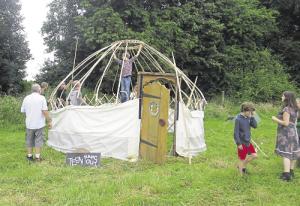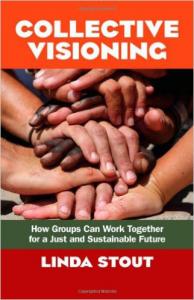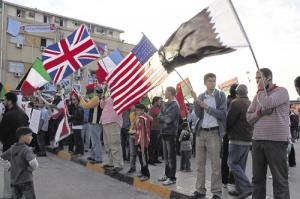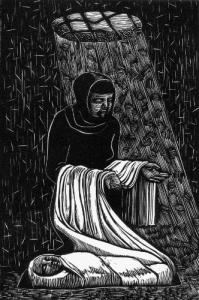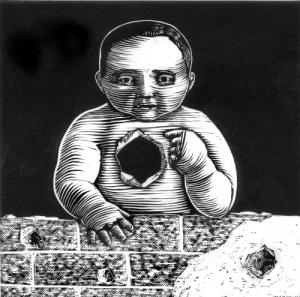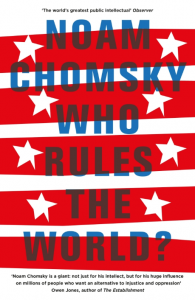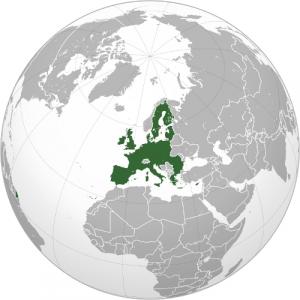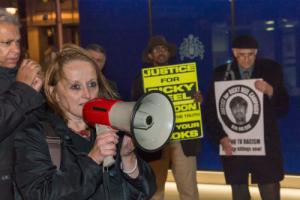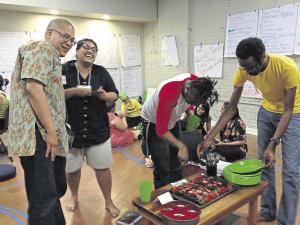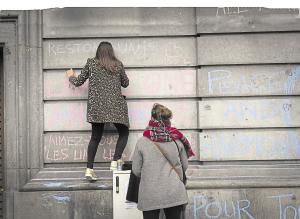The climate crisis is a racist crisis. That was the message of a Black Lives Matter UK protest at London City Airport on 6 September, when nine activists used a tripod and chains to close down a runway for over six hours, grounding over 130 flights.
The action sparked two debates. One was about the relevance of climate change, aviation and pollution to the anti-racist struggle.
Black Lives Matter UK (BLM) said: ‘Black people are the first to die, not the first to fly,…
Rai, Milan
Rai, Milan
Milan Rai
The sun shone on our corner of Shropshire, and 120 of us at Peace News Summer Camp enjoyed five lovely days of reflecting, re-connecting, recovering, and recharging our batteries.
R.E.S.P.E.C.T.
The highlight of the camp was definitely the joyous celebration of the 20th anniversary of the Seeds of Hope Ploughshares…
Linda Stout starts her book with a successful mobilisation that dwindled rapidly and is now almost forgotten – the US ‘Nuclear Freeze’ campaign of the early 1980s. She points out: ‘Supported by 70 percent or more of the [US] population, the freeze was endorsed by 275 city governments, 12 state legislatures, and the voters in nine out of ten states where it was placed on the ballot in the fall of 1982.’
The Freeze campaigners demanded an end to the testing, production and…
France led the charge against Muammar Gaddafi in 2011 not out of a concern for Libyan civilians, but out of national self-interest. That is the claim put forward in a house of commons foreign affairs committee report on Britain’s participation in the war against Libya, published on 14 September (see box below). This article…
Brexit hasn’t just been a shot in the arm for people on the Right, it’s kicked a lot of Greens, anarchists and socialists into positive action. The vote on 23 June to Leave the EU has energised progressive people in a lot of places around the UK to put renewed energy into tackling racism…
What should progressive activists (whether Leave or Remain) be doing, post-Brexit? In every area, there are different needs, for sure. However, it seems to me there is a national urge to listen to people who feel ‘left behind’ by the system, an urge rising up like a wave across the country, an opportunity which should be seized on by people committed to peace and justice.
In Hastings in England, there is an attempt to set up a ‘listening project’ – for progressive people to go to…
It has been right under the media’s nose, but they have decided not to follow up one of the most politically-explosive aspects of the 2003 invasion of Iraq, something that I exposed back in 2002 using publicly-available sources, and which has now been verified by Chilcot’s declassified documents.
The single most attention-grabbing aspect of the Chilcot report into the war and occupation was the personal note the then-prime minister…
UN weapons inspectors were not sent into Iraq in 2003 in order to find out the truth about Iraq’s weapons of mass destruction (WMD). As far as US president George W Bush was concerned – and, for most of the time, British prime minister Tony Blair – the inspectors were sent in to help set the stage for war. If they could be helpful in this role, they were to be supported. If they got in the way, they were to be undermined and, eventually, destroyed.
…Reviewing Noam Chomsky’s first book in 1969, Robert Sklar wrote in The Nation that the importance of American Power and the New Mandarins lay in its power ‘to free our minds from old perspectives, to stimulate new efforts at historical, political and social thought’.
Chomsky’s latest book, Who Rules the World? is at least as powerful in ‘freeing our minds’. Chomsky is not a sloganeer – in his very first sentence he admits that ‘The question raised by the…
What did we learn from Chilcot? Among other things, that the invasion of Iraq in 2003 was indeed a war for oil.
The day after the long-awaited Chilcot report into the Iraq war was published, the energy editor of Financial Times, Andrew Ward, explained how documents released as part of the report ‘lay bare the desire of UK companies for a share of the spoils from the opening of Iraq’s oil and gas fields once Saddam Hussein’s regime was…
On 14 May, as part of an international climate action, 2,000 campaigners entered and shut down the massive Welzow-Süd opencast lignite coal mine, and its coal-loading station, in Lusatia in eastern Germany. The protest escalated on the following day as more protesters shut down the nearby Schwarze Pumpe lignite power…
It’s not clear that Britain leaving the EU would significantly increase – or decrease – the risk of war or violence anywhere; or anyone’s level of military spending; or nuclear weapons development in any country.
On the peace movement’s major concern at this moment, the replacement of Britain’s Trident nuclear weapon system, Brexit seems irrelevant – unless you want to play a long and cynical game, calculating that the economic…
Liz Fekete is director of the seven-person Institute of Race Relations in central London. She is one of Europe’s leading authorities on racism, heading one of the most respected advocacy groups in the UK, a body which has published a rigorously radical journal, Race & Class, since 1974. That could sound intimidating. In person,…
Let’s put two things next to each other. On the one hand, Peace News is committed to nonviolent revolution, to the nonviolent transformation of society including the replacement of capitalism by participatory democracy in the workplace and the reorganisation of the…
There is a widespread, deeply-held, belief that there is something different about Islam as a religion, something fundamentally wrong. Islam is seen by many as distinctively oppressive towards women, somehow much more violent than Christianity or Judaism, to name just the two other monotheistic religions.
In the wake of the Islamic State suicide terrorist attacks in Brussels, which killed 35 people on 22 March, there is clearly going to be much more Islamophobia, much more fear and…


